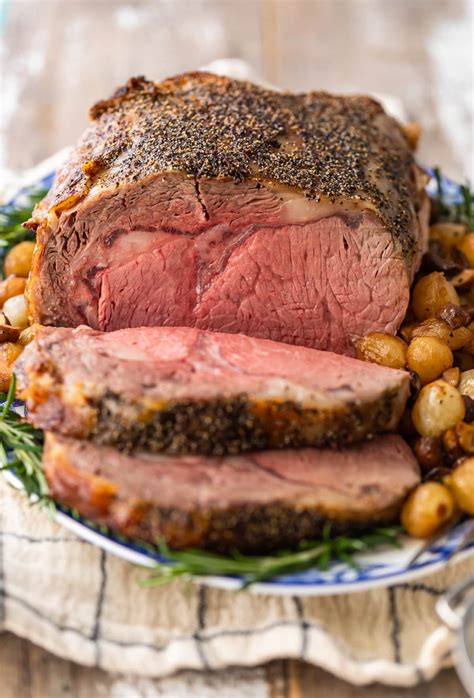Best Prime Rib Roast Recipe: A Culinary Masterpiece
Are you ready to impress your family and friends with a succulent, melt-in-your-mouth prime rib roast? This isn't just a recipe; it's a culinary journey to perfection. Follow these steps, and you'll be serving the best prime rib roast they've ever tasted.
Choosing Your Prime Rib
The key to a phenomenal prime rib lies in selecting the right cut. Look for a roast that's well-marbled – this indicates a richer flavor and more tenderness. A 3- to 4-bone roast is ideal for a crowd, but smaller roasts work equally well for intimate gatherings.
Key Considerations:
- Marbling: The more marbling (intramuscular fat), the more flavorful and juicy your roast will be.
- Bone-in vs. Boneless: Bone-in roasts retain moisture better and offer superior flavor, but boneless roasts are easier to carve.
- Weight: Consider the number of guests you're serving to determine the appropriate weight of your roast.
Preparing the Prime Rib for Perfection
Before you even think about the oven, proper preparation is crucial. This ensures even cooking and maximum tenderness.
Seasoning is Key:
This simple yet effective seasoning blend will elevate your prime rib to new heights:
- 2 tablespoons kosher salt
- 1 tablespoon freshly ground black pepper
- 1 teaspoon garlic powder
- 1 teaspoon onion powder
- ½ teaspoon dried thyme
- ½ teaspoon dried rosemary
Generously rub this mixture all over the roast, ensuring it penetrates every nook and cranny. Let it sit uncovered in the refrigerator for at least 4 hours, or preferably overnight. This process allows the seasonings to penetrate the meat, enhancing the flavor profile.
Roasting the Prime Rib: Achieving the Perfect Result
Now for the star of the show – roasting! This method guarantees a perfectly cooked prime rib, every time.
Oven Temperature and Time:
Preheat your oven to 500°F (260°C). Place the seasoned prime rib on a roasting rack set inside a roasting pan. Roast for 15 minutes at this high temperature to sear the outside and create a beautiful crust.
Then, reduce the oven temperature to 325°F (160°C). Use a meat thermometer to monitor the internal temperature:
- Rare: 125-130°F (52-54°C)
- Medium-Rare: 130-135°F (54-57°C)
- Medium: 135-140°F (57-60°C)
- Medium-Well: 140-145°F (60-63°C)
- Well-Done: 145°F+ (63°C+)
Note: Allow the roast to rest for at least 20-30 minutes before carving. This allows the juices to redistribute, resulting in a more tender and flavorful prime rib.
Serving Suggestions and Side Dishes
A perfectly roasted prime rib deserves equally delicious accompaniments. Consider these suggestions:
- Yorkshire Pudding: A classic pairing that complements the richness of the prime rib.
- Roasted Vegetables: Asparagus, Brussels sprouts, or carrots roasted alongside the prime rib add color and flavor to the meal.
- Creamy Mashed Potatoes: A comforting and luxurious side dish that perfectly balances the savory prime rib.
- Horseradish Cream Sauce: A tangy and flavorful sauce that elevates the prime rib to new heights.
Conclusion: Your Prime Rib Masterpiece
By following this recipe meticulously, you'll create a prime rib roast that will be the highlight of any gathering. Remember, the key is in the preparation, the seasoning, and letting the roast rest properly. Enjoy the compliments and the deliciousness!
